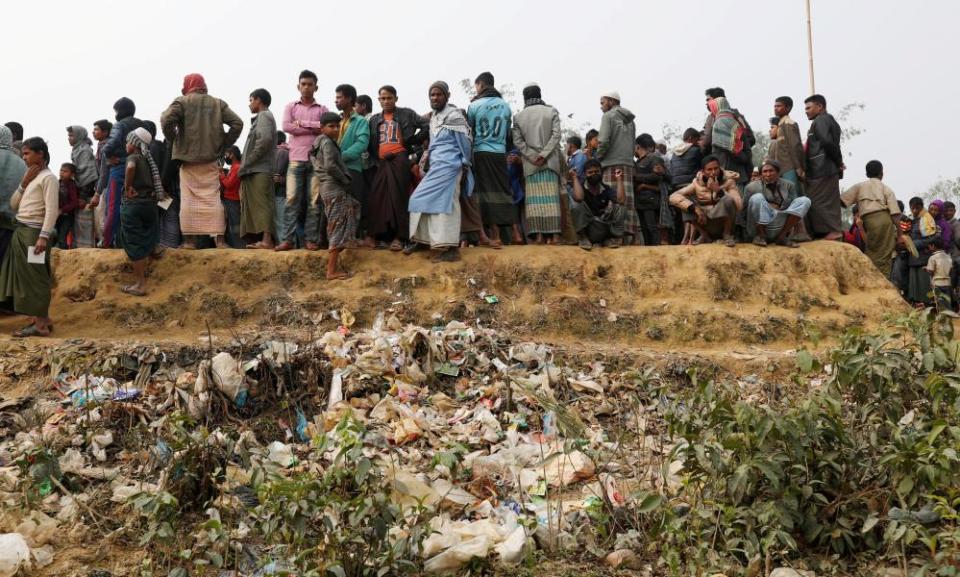Rohingya refugees reject UN-Myanmar repatriation agreement

Rohingya community leaders have rejected an agreement between the United Nations and government of Myanmar for the return of refugees who fled violence in Rakhine state.
Having seen a leaked text, the leaders say it does not address their concerns and will not help in the repatriation of the refugees.
“The agreement is on the issue of return of the Rohingya to their homes. Strangely, they did not bother to consult the Rohingya community before going for the deal. In the agreement there is no commitment from the Burmese government to fulfill our key demands as a precondition for our safe return to our homes. It is against the interest of the Rohingya,” Bangladesh-based Rohingya political activist Ko Ko Linn said.
After the authorities in Myanmar launched a crackdown in Rakhine in October 2016, many Rohingya Muslims fled to neighbouring Bangladesh. Following further military action in August 2017, in which Myanmar’s soldiers were accused of rape, murder and arson, hundreds of thousands of Rohingya crossed to Bangladesh.
In June, the Myanmar government announced it had reached an agreement with the UN that would quicken the process of repatriating the Rohingya. But the resulting memorandum of understanding was kept secret by its signatories.
After the text of the MoU leaked online, Rohingya leaders and activists say it fails to address the key concerns of the community.
“We have long been seeking a guarantee from the Burmese government of restoration of our citizenship rights before we return. But, they have skirted this issue of citizenship in the MoU to our disappointment. The plan to repatriate the Rohingya will never meet with any success if the government does not accept this key demand,” Linn told the Guardian.
Although the community has lived in Myanmar for generations, a 1982 law stripped the Rohingya of their citizenship and made most of them stateless. In the Buddhist majority country Rohingya Muslims are now identified as interlopers from Bangladesh. Myanmar’s government refers to them as Bengali, not Rohingya.
UK-based Rohingya rights activist Tun Khin said that it had been unethical on the parts of the Myanmar government and the UN agencies not to involve the refugee community before drafting the agreement.
“The Rohingya have the right to know about the details of the agreement relating to the process of repatriation, restoration of the citizenship rights, rehabilitation, reintegration and rebuilding of their bulldozed homes and their future. Our community members are extremely angry and disappointed to know of the details of the MoU, after it has leaked. They are also angry because the Burmese government did not make the the details of the agreement public,” Tun Khin, president of Burmese Rohingya Organisation UK.
Zeid Ra’ad al-Hussein, the UN high commissioner for human rights, reportedly had a heated exchange with a diplomat from Myanmar over the 700,000 Rohingya who are stuck in overcrowded camps in Bangladesh. When the diplomat told the UN Human Rights Council that his country was “committed to the defence of human rights,” Hussein said the claim “almost creates its own level of preposterousness”.

